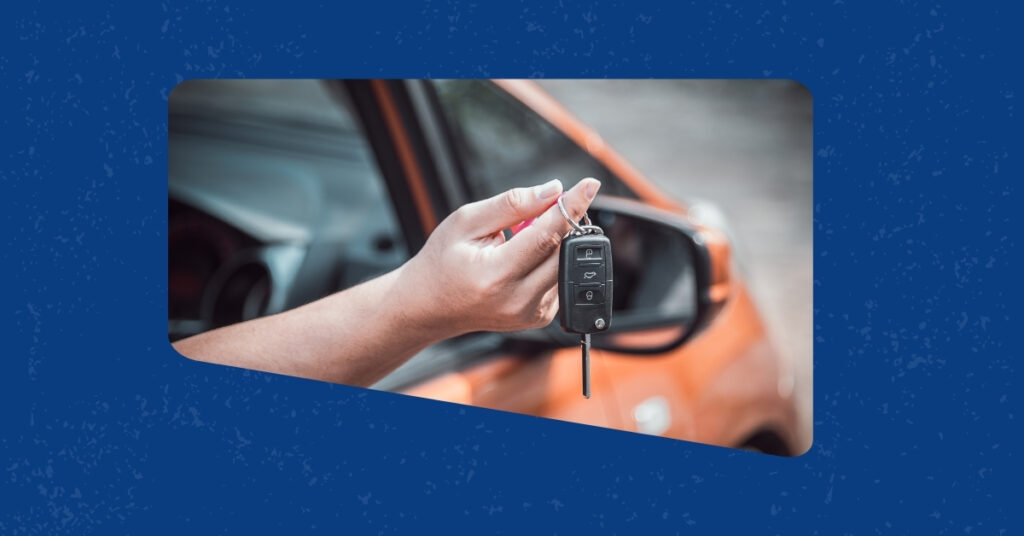Auto Loans for First-Time Car Buyers
Buying your first car is both exciting and overwhelming. For many first-time buyers, securing an auto loan is the only realistic way to finance their purchase. Understanding how car loans work, how to secure the best terms, and what pitfalls to avoid can make the process much smoother and save you thousands of dollars over time.
This guide is tailored to first-time car buyers seeking auto loans, offering practical tips, expert insights, and financial strategies. Whether you’re fresh out of college, starting a new job, or simply upgrading from public transportation, these tips will help you make informed decisions that fit your lifestyle and budget.
Best Time to Buy a Car and Get a Car Loan
Timing plays a huge role in how much you’ll pay for your first car and loan. Dealers often provide incentives and banks may offer special promotions during certain periods.
- End of the Month or Quarter: Salespeople are eager to meet quotas, making them more likely to negotiate.
- End of the Year: November and December often bring discounts to clear out old inventory.
- Holiday Sales Events: Memorial Day, Labor Day, and Black Friday promotions can bring lower interest rates or rebates.
- New Model Rollouts: When new models arrive, dealers are motivated to sell the previous year’s stock.
Pro Tip: Pairing a good purchase time with a low-interest loan can result in thousands in savings. Always check with your bank, credit union, and online lenders for seasonal loan rate reductions.
The Terms and Conditions of Car Loans
Before signing anything, first-time buyers must decode the fine print of loan agreements. Here are the most important terms:
- APR (Annual Percentage Rate) – The real cost of borrowing, including interest and fees.
- Loan Term – Usually 36–72 months. Longer terms lower monthly payments but increase total interest.
- Down Payment – Paying more upfront reduces your balance and interest costs.
- Prepayment Penalties – Some lenders charge fees for paying off your loan early.
- Gap Insurance – Covers the difference if your car is totaled but you still owe more than its value.
Table: Loan Term Comparison for First-Time Buyers
| Loan Term | Monthly Payment (Example $20,000 Loan @ 6%) | Total Interest Paid | Best For |
| 36 Months | $608 | $1,900 | Buyers with higher income, want quick payoff |
| 48 Months | $470 | $2,550 | Balanced choice for most buyers |
| 60 Months | $386 | $3,160 | Budget-conscious first-time buyers |
| 72 Months | $331 | $3,850 | Risky: lower payment but higher long-term cost |
Common Mistakes to Avoid When Applying for Your First Auto Loan
Many first-time buyers fall into traps that cost them money and credit points. Avoid these mistakes:
- Not Checking Credit Reports – Errors or low scores increase loan costs.
- Focusing Only on Monthly Payments – A lower monthly payment often means paying more overall.
- Skipping Loan Preapproval – Preapproval strengthens your negotiating power at the dealership.
- Ignoring Total Loan Costs – Always calculate total interest, not just the car price.
- Financing Add-Ons – Extended warranties or extras bundled into your loan increase debt.
Key Considerations Before Applying for an Auto Loan
1. Stick to your budget
Set a maximum monthly car payment that doesn’t exceed 15% of your take-home pay.
2. Save for a big down payment
A 20% down payment helps secure better rates and lowers your risk of owing more than your car’s value.
3. Review your credit report and score
Pull reports from Experian, Equifax, and TransUnion. Correct errors and work on improving your score.
Consider using a co-signer or co-borrower
A trusted co-signer with good credit can unlock lower interest rates.
4. Shop more than one lender
Compare offers from banks, credit unions, and online lenders.
5. Apply for preapproval
Walking into a dealership with preapproval prevents you from being locked into dealer financing.
6. Check out manufacturer specials
Car brands often have special financing offers for first-time buyers.
7. Look into first-time car buyer programs
Some lenders and dealerships have programs designed specifically for those with little or no credit.
Choosing Between New and Used Car Loans
- New Car Loans: Lower interest rates, longer loan terms, but higher purchase prices.
- Used Car Loans: Higher interest rates but lower overall loan amounts.
Tip: First-time buyers may benefit from certified pre-owned (CPO) cars, which balance affordability with reliability.
How to Determine How Much You Can Afford to Borrow
- Calculate your monthly income.
- Subtract essentials (housing, utilities, food, insurance).
- Use the 15% rule: Car payment + insurance should not exceed 15% of your income.
Example: If you take home $3,000 per month, aim for a car loan + insurance under $450.

The Importance of Your Credit Score When Applying for an Auto Loan
Credit scores directly influence your loan approval and interest rates:
- Excellent (720+): Best rates, lowest payments.
- Good (660–719): Competitive but slightly higher APR.
- Fair (600–659): Higher APR, stricter approval.
- Poor (<600): Likely to require co-signer or higher down payment.
What Documents Are Required for First-Time Car Buyers?
Prepare these before applying:
- Government-issued ID (driver’s license, passport)
- Proof of income (pay stubs, bank statements)
- Proof of residence (utility bill, lease agreement)
- Proof of insurance
- References or co-signer documents (if applicable)
How to Avoid High-Interest Loans as a First-Time Buyer
- Improve your credit before applying.
- Save for a bigger down payment.
- Shop at credit unions, often cheaper than banks.
- Avoid “buy here, pay here” dealerships with predatory interest rates.
How to Check and Improve Your Credit Score Before Applying
- Check Reports: AnnualCreditReport.com allows free annual checks.
- Pay Bills on Time: Payment history is 35% of your score.
- Lower Credit Utilization: Keep balances under 30% of your credit limit.
- Avoid New Debt: Too many inquiries lower your score.
The Impact of Your Loan’s APR on Your Total Payment
APR is more important than monthly payments. For a $20,000 loan:
- APR 4% for 60 months: $368/month, $2,100 interest.
- APR 10% for 60 months: $425/month, $5,500 interest.
That’s a $3,400 difference in total cost!
What to Know About Loan Prepayment and Early Payoffs
- Prepayment saves interest if no penalties apply.
- Check your loan agreement for “prepayment penalties.”
- Some lenders allow partial extra payments toward principal.
How to Protect Yourself from Auto Loan Scams
- Avoid dealers who pressure you to sign same-day.
- Watch for inflated interest rates despite good credit.
- Never sign blank or incomplete documents.
- Compare financing offers independently.
FAQ
What is the best auto loan for first-time car buyers?
Credit unions often provide the best rates and personalized service for first-time buyers.
How do I improve my credit score before applying for an auto loan?
Pay bills on time, reduce debt, and avoid unnecessary new credit.
How much should I put down for my first car loan?
Aim for at least 20% to secure better terms and reduce long-term costs.
Is it better to get pre-approved for an auto loan?
Yes, pre-approval gives you negotiating power and protects against dealer markups.
Can a first-time buyer get an auto loan with no credit history?
Yes, with a co-signer, larger down payment, or first-time buyer programs.
What’s the average interest rate for a first-time car loan?
Rates vary by credit, but first-time buyers typically see 6%–12% APR.
Can I get a co-signer to improve my loan terms?
Yes, a co-signer with strong credit can significantly lower your rate.
Should I finance a used car or a new car as a first-time buyer?
Used cars are often more affordable, but new cars may offer lower interest rates and warranties.

